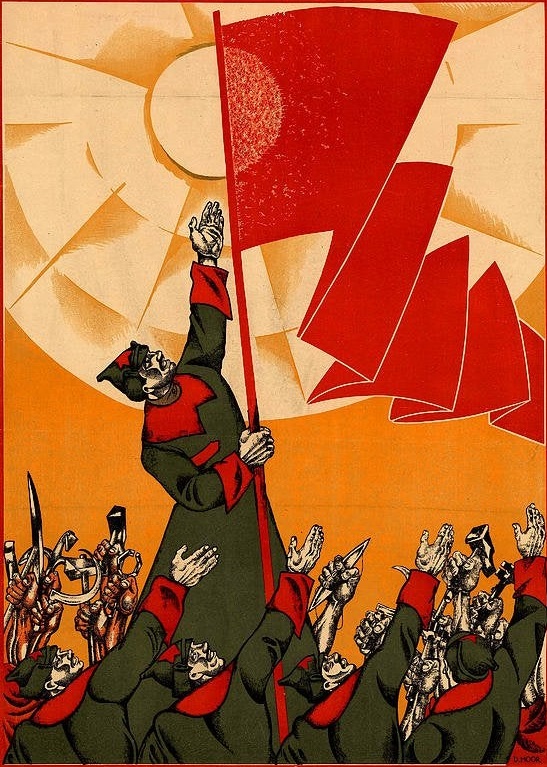As someone who has written a ridiculous amount of code that deals with date and time, I support this 100%.
Great! Now you’ll not only need to convert between timezones but also between metric and standard time.
Also the respective intervals adjusted by leap days and leap seconds will be different!
What is left to say. The Babylonians made a wise choice.
We need 6 fingers and switch to base12 math.
I mean, you already have 12 phalanges on one hand (3 each, from 4 fingers) and you can use your thumb as an indicator.
deleted by creator
Who over the age of 6 counts on their fingers
Were it only the French metric people forcibly converted everyone to base 12 or something
I could get used to that, it’s actually a great idea. Though probably impossible to implement due to inertia, at least currently.
The proof that it is probably not possible ever is that metric time was already adopted during the French Revolution, during the period when they were metricising everything else, and even they decided that it wasn’t worthwhile.
Neat but holy good fucking god the amount of programming it would take if it was ever decided to change this going forward, not to mention how historical times would be referenced. Datetime programming is already such a nightmare.
I sit in a cubicle and I update bank software for the
2000metric switch.
Lol. Seriously though, for something like this these days, it will be interesting to see what happens given we will have to face the year 2038 problem. This kind of thing was still doable for the 2000 switch because of the relatively small number of devices/softwares, but because of the number of devices and softwares now, let alone in 2038, I really have no idea how it’s going to be managed.
Although it is only software/devices that are 32-bit
Yes, this is great, always was.
And dont spoil it with timezones.
Not bad, but I prefer Swatch Internet Time
Me too. If the standards wouldn’t be held by a private company.
Now I finally know how it feels to be a real American
For once I hate metric (time)
The advantage of 12 and 60 is that they’re extremely easy to divide into smaller chunks. 12 can be divided into halves, thirds, and fourths easily. 60 can be divided into halves, thirds, fourths, and fifths. So ya, 10 isn’t a great unit for time.
I don’t understand how its any easier than using 100 and dividing…
1/2 an hour is 30 min 1/2 an hour if metric used 100 is 50 min
1/4 an hour is 15 min 1/4 an hour metric is 25 min
Any lower than that and they both get tricky…
1/8 an hour is 7.5 min 1/8 an hour metric is 12.5 min
Getting used to metric time would be an impossible thing to implement worldwide I reckon, but I struggle to understand how its any less simple than the 60 min hour we have and the 24 hour day…
And 1/3 of 100 is 33.3333333333333. There are strong arguments for a base 12 number system (https://en.wikipedia.org/wiki/Duodecimal), and some folks have already put together a base 12 metric system for it. 10 is really quite arbitrary if you think about it. I mean we only use it because humans have 10 fingers, and it’s only divisible by 5 and 2.
That said, the best argument for sticking with base 10 metric is that it’s well established. And base 10 time would make things more consistent, even if it has some trade offs.
I will always up vote base12 superiority posts
My vote is power-of-two based. Everything should be binary. It is divided up so much easier and counting is better.
The clock should go from 0.0 to 1.0. Dinner time would be around 0.7083 o-clock.
Dinner time would be around 0.7083 o-clock.
This is fairly similar to .beat time; in that system you would write it as @708. I guess you could make it @708.3 to be more specific.
I loved the idea behind Swatch’s .beats. A “beat” was slightly short of 1.5 minutes, so totally usable in everyday life. If you need more precision, decimals - as @sawdustprophet@midwest.social suggested - are allowed.
However, one big issue of it is that it is based on Biel, Switzerland local time and the same for everyone around the world. Might not be that big of a problem for Europeans, but while e.g.
@000is midnight in Biel, it’s early morning in Australia, and afternoon/evening in the US.And the second, bigger issue becomes obvious when you start looking at the days. E.g. people in the US would start work
@708on a Tuesday and finish@042on Wednesday. Good luck scheduling your meetings like this.
Pair it with International Fixed Calendar and I’m on board.
I noticed this my senior year of high school (1991) So much easier. Every month has Friday the 13th too! Lol
I think you meant to link decimal time per Wikipedia?
No. But they are so similar, I’d be happy to adopt either. In fact, decimal time was actually used briefly.
Here is the link you wanted:
I feel like I’m going crazy at moments like this.
Wikipedia on Metric Time:
The modern SI system defines the second as the base unit of time, and forms multiples and submultiples with metric prefixes such as kiloseconds and milliseconds.
Edit: Attention that this is the SI second, not a decimal second
Wikipedia on Decimal Time:
This term is often used specifically to refer to the French Republican calendar time system used in France from 1794 to 1800, during the French Revolution, which divided the day into 10 decimal hours, each decimal hour into 100 decimal minutes and each decimal minute into 100 decimal seconds
With metric time the day is broken into 10 hours.
A metric hour is broken into 100 minutes.
A metric minute is broken into 100 seconds.So either Wikipedia is wrong or the website.
Then the wikipedia is wrong? Because what the website you linked calls metric time Wikipedia calls decimal
deleted by creator
No. But they are so similar, I’d be happy to adopt either. In fact, decimal time was actually used briefly.
Here is the link you wanted:
Yeah but don’t make the units “metric hours/minutes/seconds” for crying out loud. Make another unit of measurement.
US miles, or Scottish, or Swedish, or what? Reusing a word for a different meaning is never the solution.
This is really neat, but of course people on Lemmy are already talking about using it practically as a replacement for standard clocks…
I swear, I’ve run out of facepalm on the topic of metric vs. ________.
Thank you, crossposted to !interestingasfuck@lemm.ee
A friend once mused that “wearing a watch is like being handcuffed to time.” It’s one of the reasons I stopped being a watch guy (but more because I checked it compulsively but didn’t know what time it was when a coworker saw me check and ask the time).
Anyway, I prefer to try not to keep track of the time unless I need to be somewhere.
If you want to go the middle way, you could consider a one-hand watch.
I Used to joke about this with my Canadian coworkers. Didn’t know it was an actual thing?











